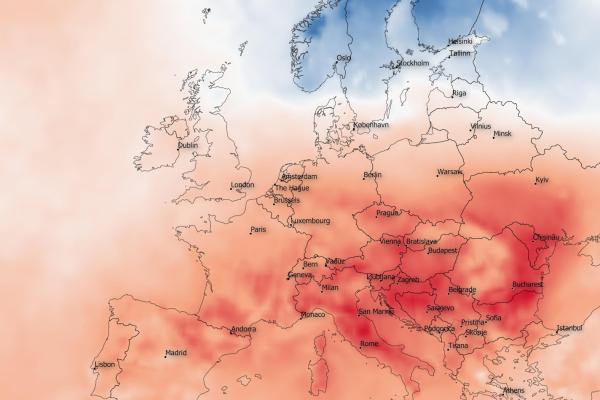
Aiming for climate neutrality while economic recovery is underway is a daunting challenge, as the transition to a net-zero emissions world requires unprecedented financial investments. Cities have a pivotal role, as they are responsible for 78% of the world's energy consumption and produce over 60% of greenhouse gas emissions.
A new JRC study that looks at the financial strategy of 362 European cities identifies that the majority of them are still underprepared, lack essential knowledge and are struggling to mobilise funds to deal with climate action. Not surprisingly, economic barriers are the major obstacle identified by most of these cities in their quest to become climate neutral by 2030.
Despite these limitations, local governments are demonstrating remarkable creativity and ambition. They are exploring innovative financing mechanisms that complement conventional instruments such as public investment or EU funding.
The report draws insights from the self-assessment of 362 cities participating in The 100 Climate-Neutral and Smart Cities Mission. These cities are front running in the efforts to reach climate-neutrality.
Most cities have not estimate the total investment to become climate neutral
The estimates of the total investment needed to become climate neutral are very diverse among respondents, but most of them could not provide a figure for the overall cost of the transition to a net-zero emissions city.
In fact, only a handful submitted detailed forecasts, while a staggering 72% (261 cities) provided not even a rough estimation. Moreover, over 60% of the cities (220) have not started or are just beginning to draw their climate actions plan. Only 31 of the respondents declared to have a pipeline of projects ready for investment.
Among those cities that could provide a number, the investment falls in the 0.1–10 billion € range. The authors of the study estimate that this would translate in an investment of 13.75 to 186.25 M€ each year per city from today until 2030.
The wide variations observed on the investment estimates could be explained by the different population, income levels, and estimation methodologies for each city.
Diverse funding sources but limited involvement of private resources
Cities aim to cover the estimated cost through a variety of sources, including regional, national and EU funding, alongside private financing and their own funds. However, reliance on public funding from national and EU sources remains high, while most cities expect to cover less than 20% using their own funds.
Experience in financing specific climate projects is limited for many local governments and only a few feel well equipped to tap capital markets. Nearly 41% of the cities have never assessed the potential of capital markets in providing climate funding and investment and have made no steps towards establishing an investor community.
Additionally, co-financing with the private sector has not been fully developed yet, and few steps have been taken to establish an investor-ready pipeline of projects contributing to climate neutrality.
Cities: at the forefront of financial innovation
Remarkably, cities are turning to financial innovation in their search for solutions to the challenge of limited public funding and low involvement of private resources. Nearly 30% of the cities reported experience with diverse innovative financial instruments such as green bonds, energy performance contracting and crowdfunding schemes.
Through a learning-by-doing approach, they are creating blueprints and new business models, paving the way to a deep and long-lasting transformation, and fostering a dialogue and collaboration with key players.
Barriers and capacity building needs
While cities are open to new creative solutions, the study highlights significant gaps in administrative and technical knowledge that are hindering the development of fully fledge climate action plans. Nearly half of the cities flagged the need for capacity building on climate finance.
As these 362 cities could serve as experimentation and innovation hubs to enable all European cities to follow suit by 2050, it is important to overcome the main barriers, rooted in current financial management, regulation, and institutional arrangements, to unlock access to financing at city level.
Background
This paper forms part of a compendium of scientific publications on various aspects of climate neutrality at the urban level, based on the Cities Mission dataset.
- Towards the first cohort of climate-neutral cities: Expected impact, current gaps, and next steps to take to establish evidence-based zero-emission urban futures
- Let's hear it from the cities: On the role of renewable energy in reaching climate neutrality in urban Europe
- On the risks associated with transitioning to climate neutrality in Europe: A city perspective
- Towards (net) zero emissions in the stationary energy sector: A city perspective
- Circular economy and waste management to empower a climate-neutral urban future
- Assessing climate justice awareness among climate neutral-to-be cities
These studies contribute to the goals of The 100 Climate-Neutral and Smart Cities Mission, seeking to deliver 100 climate-neutral and smart cities by 2030.
Sources
Details
- Publication date
- 23 November 2023
- Author
- Joint Research Centre
- JRC portfolios




